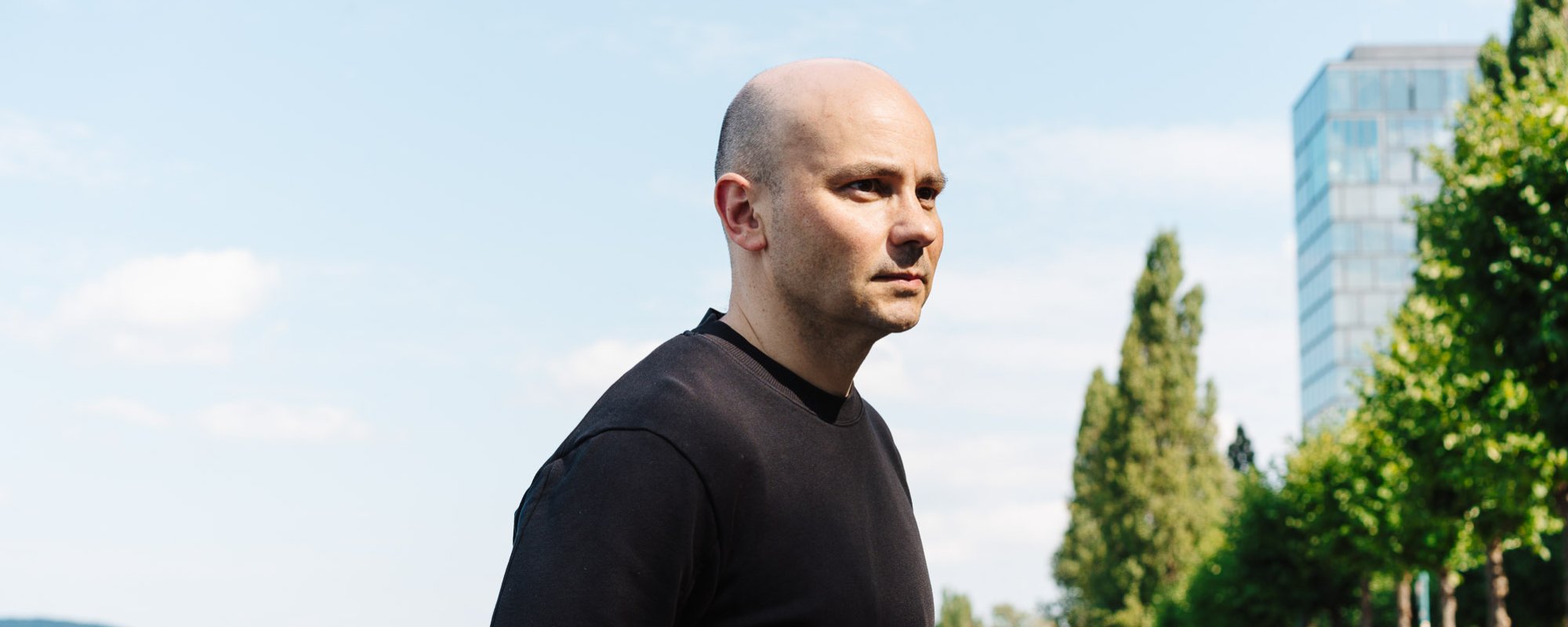Andrei Pivovarov is the director of the movement Open Russia. In the summer of 2021 he was arrested, accused of taking part in the activities of an ‘undesirable’ organisation, and as soon as July 2022 he was sentenced to four years in prison. He spent the first six months of his sentence in SIZO-1, a special unit of the pre-trial detention, in Krasnodar. Later, he was sent to a prison in Karelia, a northern region of Russia close to Finland. The politician spent the majority of his time in solitary confinement under special monitoring. OVD-Info’s correspondent met with him in the German town of Bonn, several days after he was released in a large-scale East-West prisoner swap on August 1st. You can read our interview with his wife, Tatiana Usmanova, here.
Translated by OVD-Info volunteers
Localized by OVD-Info Fellow Paulina Bogusz.
Learn more about making a difference with our fellowships here.
«Even a prison guard couldn’t live by these rules»
We stop by a cafe on the banks of the Rhine. Andrei gets himself a coffee.
— By now, you’re probably not used to getting yourself a coffee, or choosing what to have for lunch?
— Oh, yes! There, in the [prison] shop, there was a meagre selection, and you’re always coming up with some sort of joke in order to cheer yourself up. Imagine what would happen if you got a bulb of garlic, chopped it up and put it in a jar, poured over some oil, put in some salted peanuts, and covered it in some stock…
— …it wouldn’t be good, right?
— It would be magical!
— Several days have already passed since your release. How do you feel? Have you had time to get used to it a little? Do you not want to hide and get away from all the attention?
— I’d really like to do that. At the press conference [of freed political prisoners on August 2nd] there were only three of us not because we’re disrespectful and cut ourselves off from everyone. If the girls wanted to participate, they would have been there. It’s just that for certain reasons it’s very difficult for everyone. None of us agreed to be deported, and when you are driving through Moscow and understand that you won’t see it again anytime soon, it’s really tough. And then you suddenly find yourself abroad and don’t understand why you ended up here, or what you’re supposed to do.
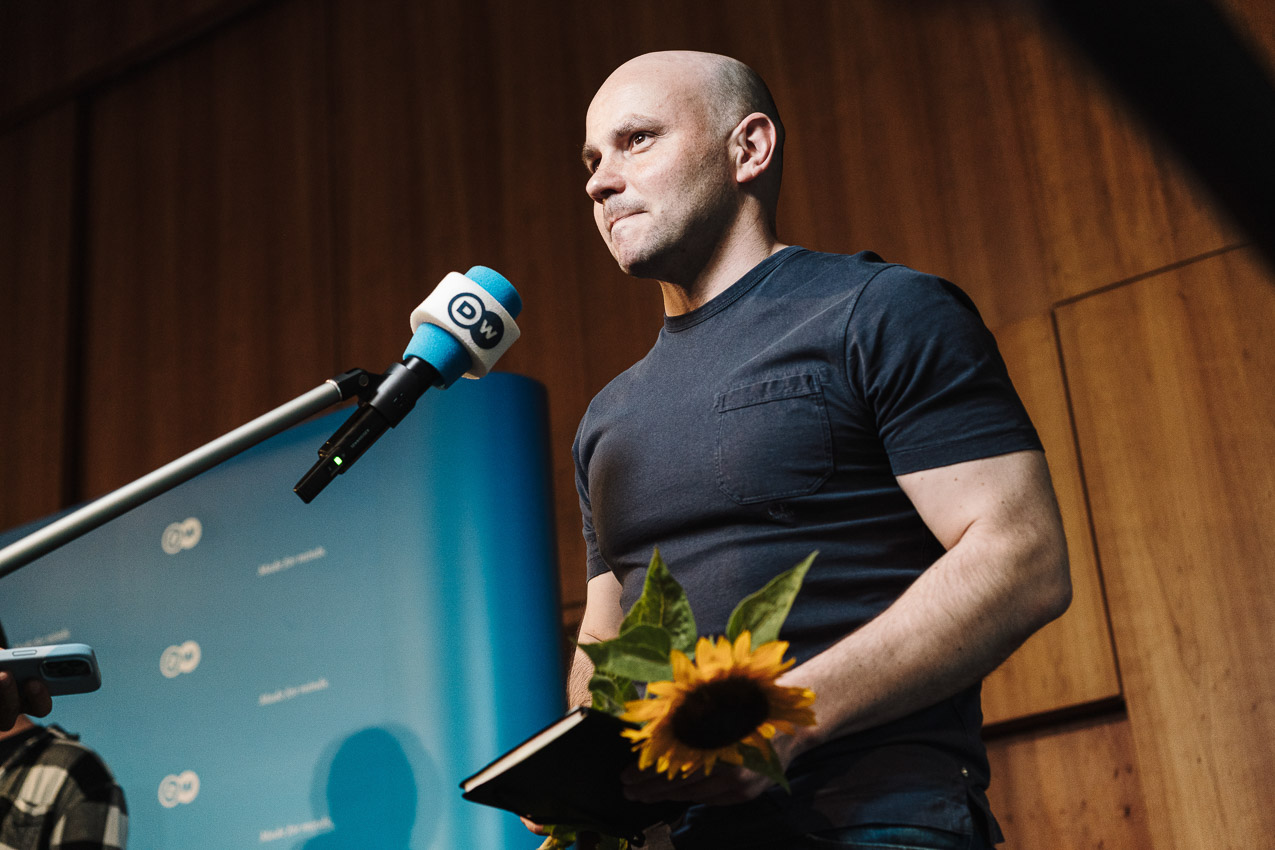
Andrei Pivovarov after the press conference in Bonn, Germany, 2 August 2024
— It’s such a depressing feeling; you want to hide under your covers and not move, because it’s mentally tough. You want to rest and crawl under a rock. It feels like the world is trying to pounce on you.
— When do you have this feeling?
— Even in routine, everyday life. In prison your vision deteriorates, because usually you’re in a space which isn’t bigger than three to five metres, ten maximum. You don’t need to see anywhere far away. And now I look into the distance and I see a huge river, I see a forest. When Sasha Skochilenko and I were being transported in a police van [to Lefortovo Prison in Moscow], men weren’t allowed to go to the toilet, but women were, and she returned and said «Andryukha, there’s a forest here, a forest! How I dream of a forest!» «Oh, a forest», I said, «oh wow!»
I mean, I now have the opportunity to move and to decide something for myself. There [in prison], you fight for the smallest rights, and now they’ve increased so much. In Karelia, I began in a «punishment cell», then was moved to a «single cell-type room», then put in «strict isolation». The problem with the single cell-type room is that you can’t have anything of yours there. They give you a uniform and underwear, a mug that is theirs, books that are theirs, and you can only take sheets of paper with you for an hour and a half of free time. But maybe you have a cool postcard with a cat on it that was sent to you by your family, you [secretly] brought it with you and you can look at it, or maybe you can leave your bookmark in a small book; and you have already outsmarted them.
When I was in strict isolation, I took a copy of the prison regulations with me. When they’d watch me [through the cameras], they’d see a person reading the regulations — no one can complain about that. But what they didn’t understand was that you could hide some paper there. And that was my little victory.
— What other tricks did you use to bypass the rules?
— My «kilograms» were strictly controlled. See, you can only buy 36 kilograms of food and other items in prison [according to the internal regulations]. No one else’s food and belongings are really weighed, but mine were, because I was subject to special monitoring. They were afraid that the prison commission would come, an inspection would begin, and they would see I had a lot of something and they would get in trouble. That’s why they weighed all my papers, books, items, and food. 36 kilograms seems like a lot, but my criminal case files weighed five kilos, and so did all my correspondence and books. Winter clothes weighed a lot too.
It’s stressful. You can buy things at the prison shop twice a month, if you want to get something for yourself. And you start to be a little sly. I got some household items and hid them under the toilet so they were not visible. Right before the weigh-ins I; d hang everything up to dry and then think, «yes, you tried to catch me, but I outsmarted you!» These are trifles, but they were important in day-to-day life. Everything is regulated there: when to eat, when to change, or when to shower. For example, there is a half-hour slot for washing, but once I finished in 10 minutes and began reading a book. The cameras caught this — I was reported.
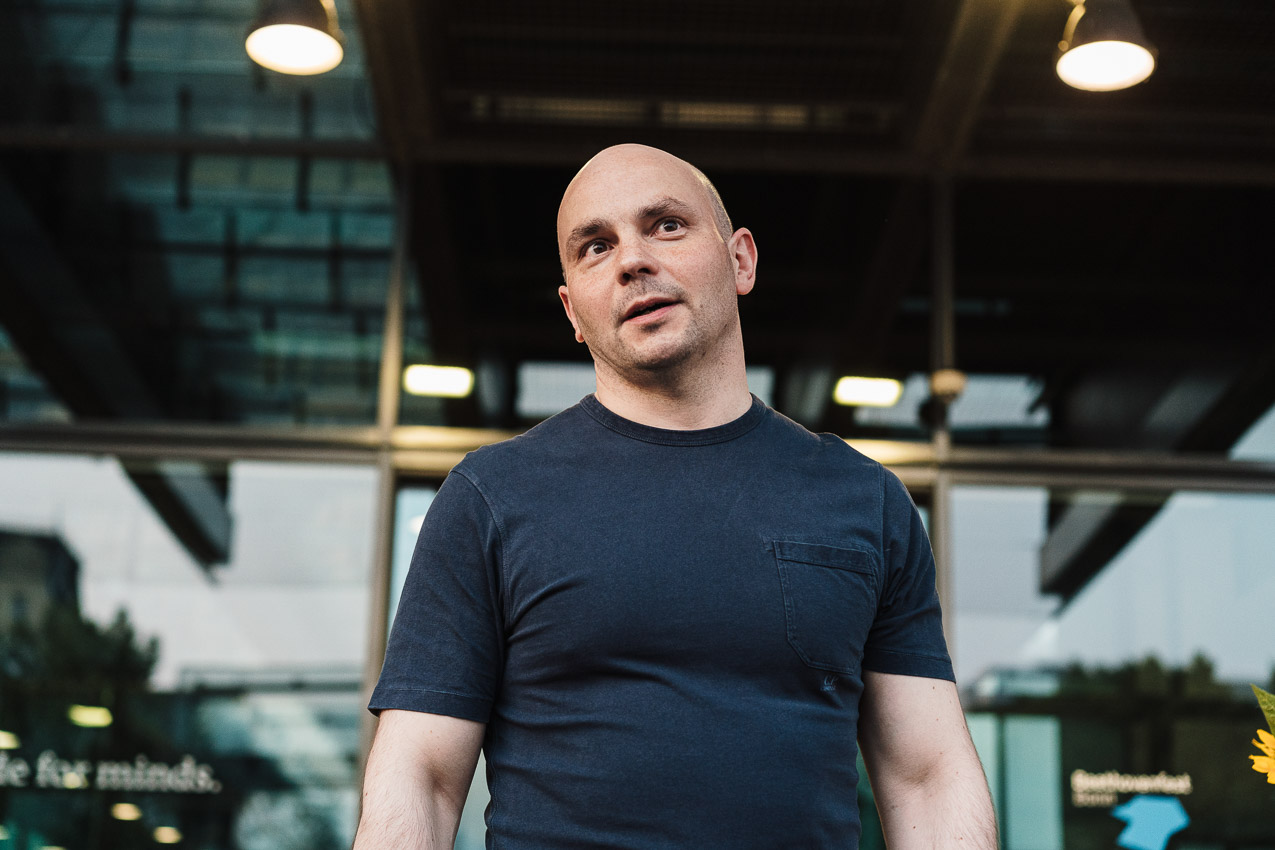
Andrei Pivovarov after the press conference in Bonn, Germany, 2 August 2024
— What punishment does being reported threaten?
— It’s a violation. If you have a few of these violations in your file, you’re sent to a punishment cell. For example, this book violation was recorded in my file and because of it I had no chance of getting out of strict isolation. See, to get out of isolation you need to have no violations in your file for nine months. Then you just read a book — what kind of a normal place do you think this is? They would not have let me out anyway, but now they had a reason. Unfortunately, the system is set up in such a way that even if you were a prison guard, you wouldn’t be able to live by these rules. You would always make mistakes.
«On the defensive»
— You mentioned that your eyesight has deteriorated during your time in jail, and I noticed that your voice seems hoarse. Is this also a result of your imprisonment?
— I now have this strange feeling… not exactly one of uncertainty, but of being in a new world and needing to protect myself from it. Before [I was imprisoned], when I’d enter a store and there were people standing in my way, I would ask them to move. But now, I don’t ask — I wait. I’ve become quieter and more cautious. I still haven’t adapted to the new world, and I find myself on the defensive. I hope this feeling will pass, but it’s a legacy of being in prison.
— Then how do you feel about the increased attention you have received as a politician, former political prisoner, and participant of an unprecedented exchange?
I’ll be honest, when we were on the bus and then on the plane, we rallied together. Some people knew each other, some didn’t, but we were all in the same situation, and for us, it was just a kind of get-together. However, as [my wife] Tanya [Usmanova] explained to me, many people saw it as a very important event. We alone didn’t realise its significance to others. We understood that it was important for us personally, but we didn’t think that it would impact so many people, or that so many would be watching and worrying about it, or that people would come meet us at the airport. When we planned the press conference, we expected people to come and talk, but then the organisers called and said there were hundreds of people registered, we were surprised.
— Did you really not expect this to happen? Did you not think it would be such an important event?
— Understanding what happened came gradually. We only realised what was going on and what kind of exchange it was when we got on the bus from Lefortovo prison. We only realised we were flying to Turkey after we took off. We did not understand the scale or the attention people paid to this process, so when we realised what was happening, we understood that we needed to push ourselves a little bit, and instead of focusing on getting some sleep or doing household chores, to use this as an opportunity with the hope that this [such exchanges] will happen again. It is very important.
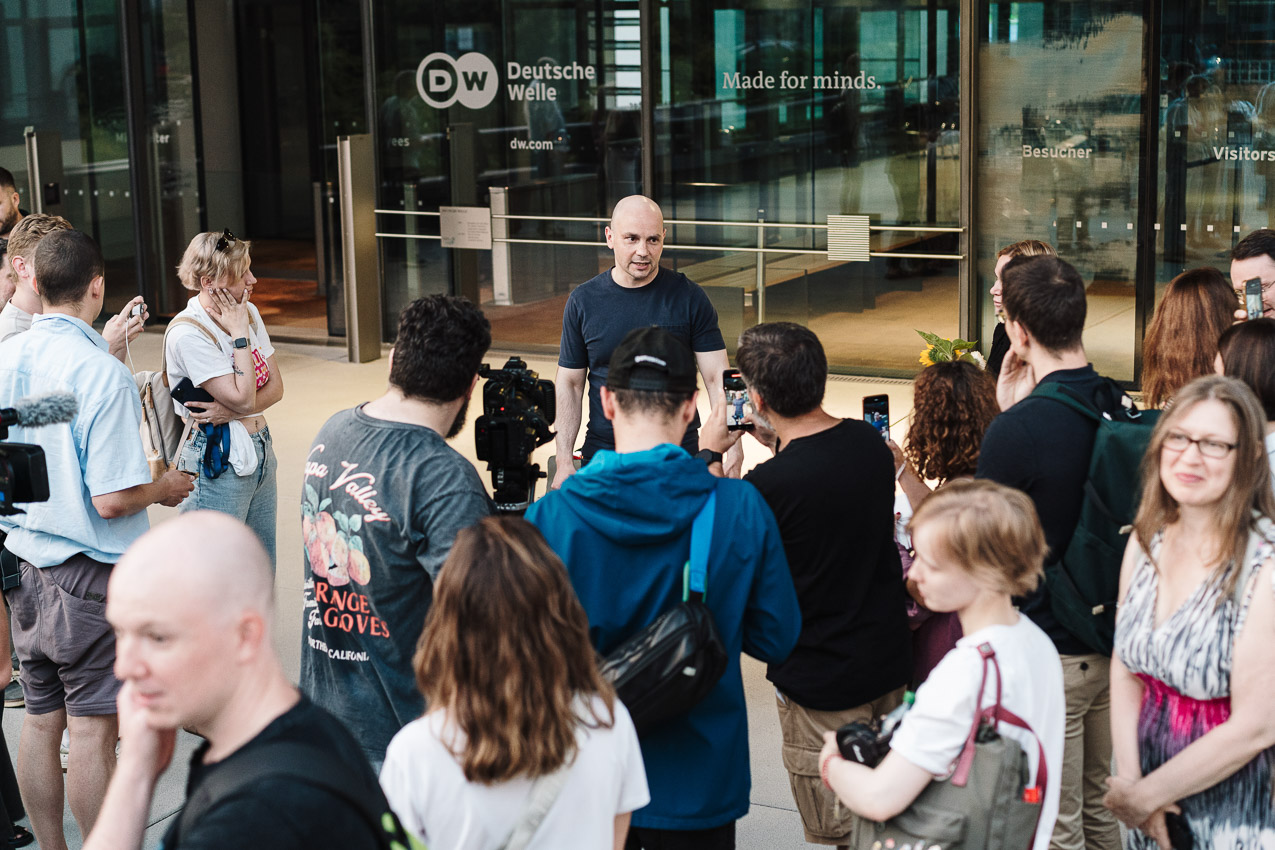
Andrei Pivovarov after the press conference in Bonn, Germany, 2 August 2024
I imagined that if I were sitting in a cell and received a letter or news saying that someone had been exchanged, I would be very happy, even if it didn’t concern me. Now in Russia there are dozens of people who are not even twenty yet and are getting several dozen years of sentences. There is no parole or forced labour for political prisoners; everything written in the national criminal code is nonsense, nothing works for us. And when people realise that in this bad world there is a chance, or even an example of success, it’s cool. I think it would cheer them up. A prisoner always roots for other prisoners.
— Can you describe the dynamics of your relations with other prisoners?
— I have the experience [of being imprisoned] in both the South and North [of Russia]. In the South, there is an atmosphere of mutual aid and community. There’s a great word for it: «lyudskoye», or «human», in the sense of being humane or kind. People help each other. If some poor soul needs trousers or a mug, someone will find those items for them. If someone arrives without food, someone’ll find them some. In return, you’re expected to behave decently and not be greedy. No one will find you smoked fish, but they’ll find you instant noodles. And if you have three packs of instant noodles, be willing to share.
Or in one of the establishments [the prisoner transportation in Russia often involves a chain of intermediate prisons on the way to the final destination], when people realised that we were just passing through and there was no way for us to buy anything at the prison shop, and our supplies had run out, at some point we would simply receive a package from neighbouring cells, in which there was tea, cigarettes, and some cheap sweets.
Or there was another time there when a guy turned 18, and he was moving to a regular cell [from a cell for minors]. The guys I was locked up with were pretty noisy. I heard them say, «It’s Mikhail’s birthday!» And everyone slipped something into Mikhail’s door slot. I had half a stick of sausage, so I gave that to him. Someone else gave him some tea. And this poor kid left with a huge bag. It’s this team spirit, this human connection, that really impresses me.
On the other hand, there’s Karelia [in the north of Russia]. There, all transfers and gifts [between prisoners] are strictly prohibited according to the prison regulations. There have been instances where individuals involved in collecting tea or cigarettes were nearly charged with criminal offences for being part of the so-called extremist community known as A.U.E.
— «A.U.E.» was recognized as an extremist organisation in 2020. Every morning [in the Karelia prison], they would say: «on August 12th 2020, the Supreme Court of the Russian Federation decided to ban…» There, you can’t give or transfer anything to anyone. It got to the point where, when my cellmate was found with newspapers that I subscribed to, there was panic and hysteria!
— What? Why?
— «How can you possibly allow one inmate to use another inmate’s belongings?» This was noticed during a routine inspection, and within 30 minutes, someone came and removed the box where we stored old newspapers and books.
In my situation, the staff were even more anxious because every inspector who came to conduct checks would go straight to me. I was like the display monkey. I thought it would help me resolve some issues, but it didn’t. Any appeals were met with excuses: «Everything is fine [with you]».
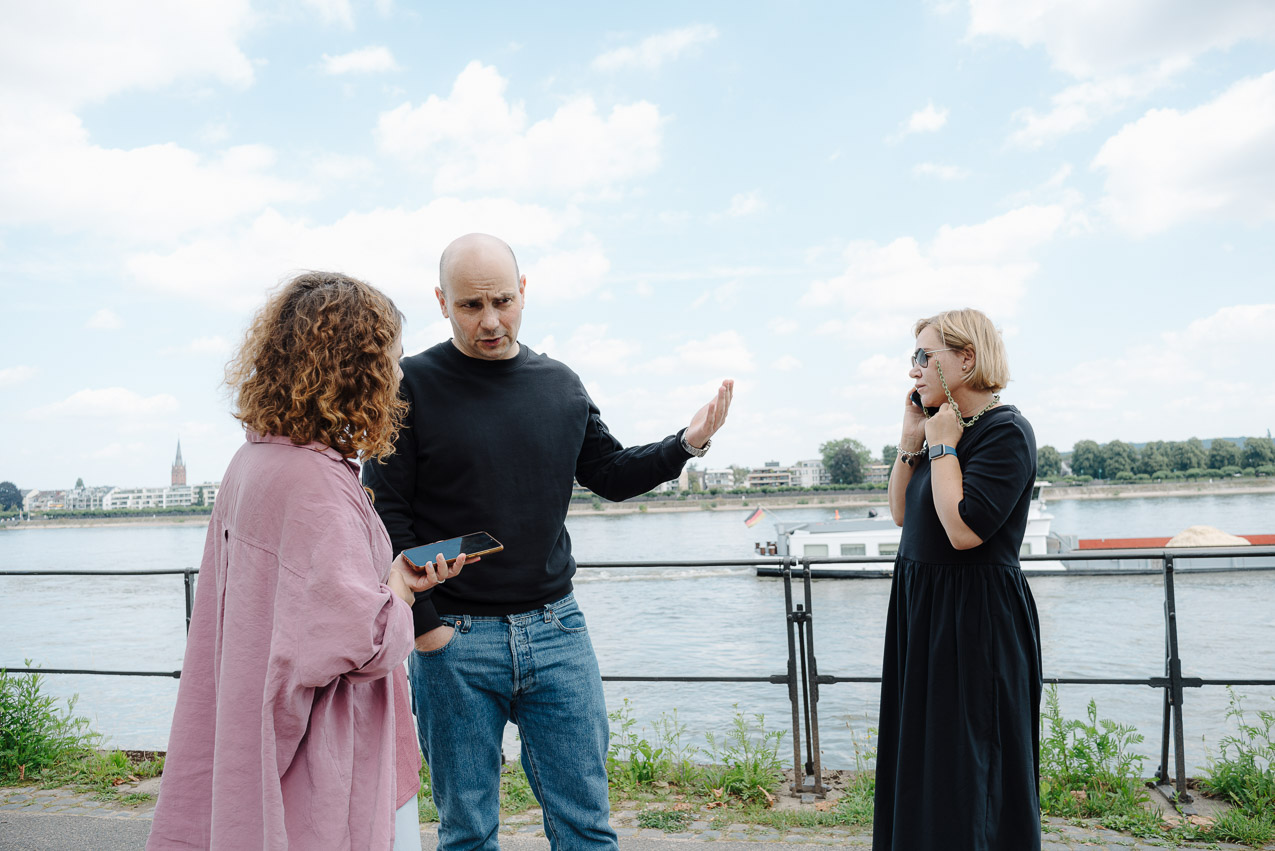
Andrei Pivovarov and Tatiana Usmanova during an interview on the banks of the Rhine in Bonn, Germany, 5 August 2024
Sometimes it was even worse: a smart-looking colonel in glasses would come in and he’d want to chat, would ask how I was doing and what I was up to. I’d say I was writing letters. «Ah, mhm. Like Lenin to Kautsky?» We’d laugh, he’d ask me about books. I’d think we’d had a pleasant conversation. It’d turn out that after this pleasant conversation he’d go and write a complaint, that while it was time to watch TV, prisoner Pivovarov had a pen in his hand. It’s really frustrating because you only get an hour and a half to write letters, and an additional hour to watch TV. Even though I was in solitary confinement, if the schedule says it’s time to watch TV, then its time to watch TV, you can’t write.
There’s nothing you can do about it. Everyone says: «We have a direct order. There’s a camera here watching you. If the camera notices [any violations], we get a call, an inspector comes, he writes a report». I even tested it out once: I was sitting there, and I picked up a Sudoku puzzle. I had just started writing when I heard «What are you doing? Why are you writing? Put it away!»
— Is there a way to negotiate with anyone to make the treatment a bit more humane?
— Unfortunately, the system is designed in such a way that if an inspector sees a violation and doesn’t report it, a field officer will spot it and file a report against the inspector. If the field officer overlooks it, their supervisor will take further action. It’s a system where everyone’s actions are scrutinised.
— So it ends up being a collective complicity?
— Yes, they file complaints against each other. To put it plainly, if one operative shows up in the wrong shoes, their supervisor immediately notices it and says «why aren’t you in uniform? I’m reporting you.» I’m not defending them. It’s their choice to work there. ThoughI’ve seen young guys who only get three days off a month because there aren’t enough staff. Without explicit instructions and orders, they can’t do anything.
«Life without a connection is tougher than life without a slice of bread»
— What was the information access there like? What news from the outside did you receive?
— For the first year and a half, I was in a special unit in Krasnodar. Although there was no TV or radio in my cell, communication was still possible: we had a neighbouring cell with «lifers» who were legally required to have a TV, and we could shout through the doors. If something was happening, you could knock on the wall and ask, «Hey, what’s going on?» and the guy would update you based on what he saw on TV.
Remember, when there was a coup in Kazakhstan? See, we didn’t know anything about it because our lawyer didn’t visit during New Year’s. Then, among the «lifers», a rumour started circulating that things were «very bad» in Kazakhstan, that we had sent in troops, that people were being killed, and some important criminals had been arrested. What was going on?! Everyone was discussing it, and it wasn’t until 10 days later that our lawyer finally showed up and told me everything.
In Krasnodar, there was at least some [news] stream, but in Karelia, there was absolutely nothing. When I arrived, I was immediately placed in a punishment cell and then moved to a single cell-type room, and the staff didn’t talk about anything. If you tried to get any information, they would just say: «everything’s fine». There was only one radio station called Taxi FM, and I can identify any song on it in just two notes. It constantly plays the same music. It’s not bad, but the same songs over and over again combined with the lack of any news creates a sense of paranoia. Every day feels the same, and the only thing that happens during the day is your one-and-a-half-hour walk outside. It was tough.
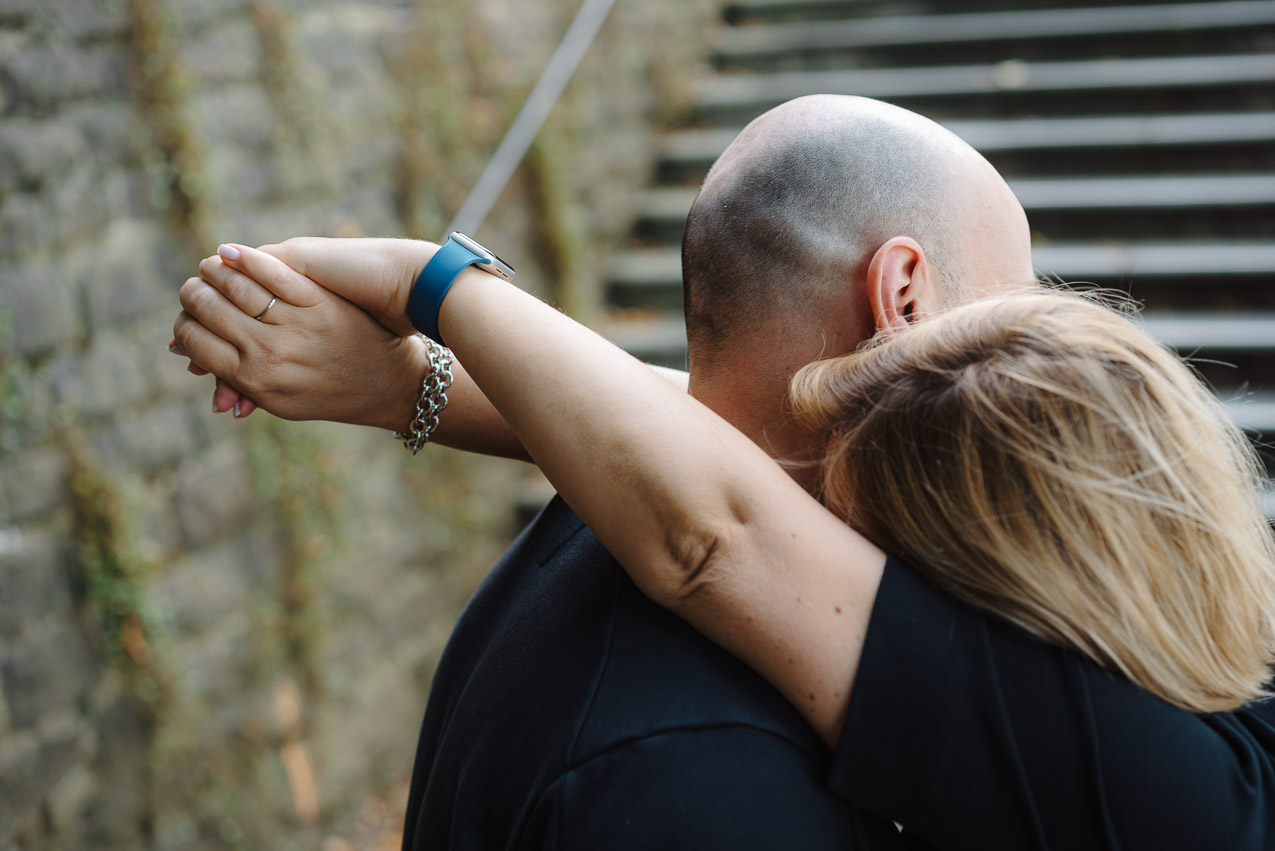
Andrei Pivovarov and Tatyana Usmanova, Bonn, Germany, 5 August 2024
— What if you knocked on a cell door and asked them to change the station?
Knocking wasn’t allowed. While it might’ve been possible in Krasnodar, in Karelia any inter-cell communication would immediately result in a report. «Hello, it’s Pivovarov» — even that would get you a report. You were only allowed to exchange a brief «good night» in the evening, anything beyond that was prohibited. Moreover, it was surprising that the place where I was confined in Karelia only received one radio station. It was broadcast centrally to everyone in the prison, and it wasn’t until a year later that the staff bought-out some sort of better access and more music stations appeared. Until then, yes, people would spend, for example, two and a half years in a single cell-type room listening to the same music over again and again — it was a form of torture in itself. You get used to it over time, but life without a connection is tougher than life without a slice of bread.
— That was the radio. What was the situation with access to literature?
— There was a lot of paranoia. Books weren’t allowed if they contained the smallest amount of political content. It reached absurd levels: [a book by philosopher] Michel Foucault was banned because it described a prison plan. [I told them] «but that’s the Bastille!» — «No, it still isn’t allowed.» Even an anti-fascist book like «The German War: A Nation Under Arms» wasn’t allowed. Everyone was overly cautious. Eventually, I decided not to bother them too much and asked: «would you allow Tolkien?» They did, so I sat and read fairy tales.
Formally, the law says not to allow literature on pornography, extremism, specialised knowledge related to combat techniques, or dog training.
— Dog training?
— Yes, training dogs. After all, we’re guarded by dogs. Parkour is also banned for some reason.
«Prison is a cross-section of society»
— Were you already in Karelia in February 2022?
— That was still in Krasnodar. I did not believe it. It was an amazing coincidence that a few days before, on 22 February, they had temporarily turned the radio on, and we listened to Putin’s speech at the Security Council until the curfew. We became alarmed, there was this feeling that something was about to happen. In addition, the local operatives said that they had had reinforcements, which meant that weapons had been distributed. We didn’t fully understand what was happening, after all there was no contact with the outside world.
On the morning of February 24th, we knew: something had begun. We had to wake up at 6am, and inspection and roll call was at 8am. The guys were shouting [unusually loud], there was swearing. Inspectors came, there was a normal-looking one among them. I asked him: «What’s going on there?» He said, «everything’s fucked there».
We were stunned, there was no information. There was a general feeling of bewilderment and incomprehension. Informational isolation was taking its toll. After a while, our lawyer came and explained what was going on.
— How did you find out about the murder of Alexei Navalny?
When I was moved into strict isolation, there was a TV there. You could flip through the channels that were broadcast to the whole prison. I had time to watch TV for an hour in the afternoon and an hour in the evening. They broadcasted state channels. There’s a news programme on Channel One called «the Big Game». It’s really nasty; if you want to be disgusted, turn it on. For me, it was the only way I could find out anything; when they’d discuss some events, I’d find out what happened. And so this programme was interrupted, and its presenter said: «We have received news from the Yamalo-Nenets Autonomous District that prisoner Navalny has died.» I jumped up from my seat: what?! Then the news started playing. It was a short message, then nothing.
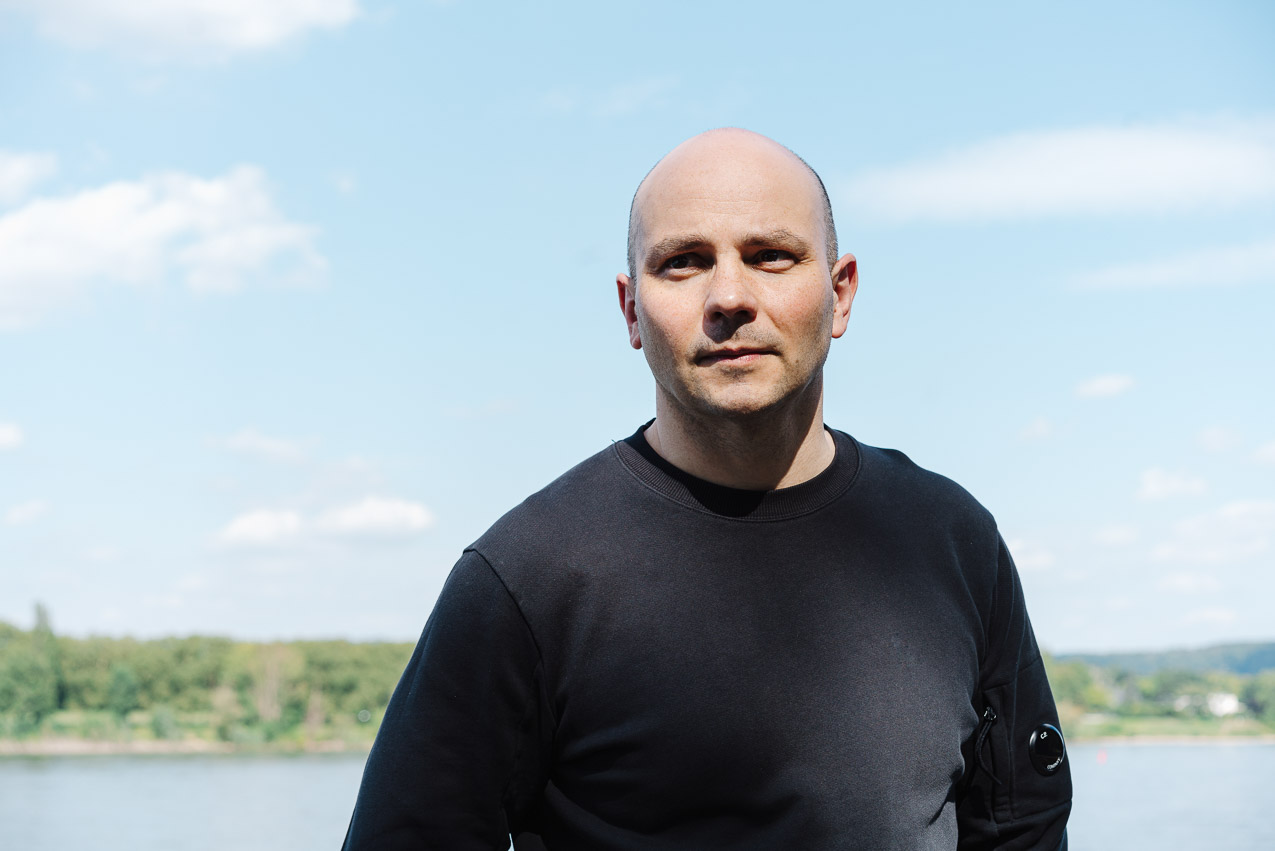
Andrey Pivovarov on the banks of the Rhine in Bonn, Germany, 5 August 2024
— The allotted time to go to the bathhouse was just about to start. You can go there after TV time. I refused, said that I’m clean. See, you can’t just refuse, you have to state the reason why. I was completely devastated, and anxiously waited for my lawyer for the next few days, hoping for the best, because Alexei had taught us that one could get out of the most desperate situations. It was a big blow.
With time you realise his strength, because we all read his funny posts about the punishment cell or the single cell-type room, and when you find yourself in those conditions you realise that he was in hell. Only for me it lasted 100 days, and for him it was two years. During this time, your health and nerves deteriorate, you constantly expect a set-up, a provocation at every corner. For instance, I contracted scabies in the single cell-type room, and they couldn’t cure it for a long time. They’d take me to the medical centre — I think it was because of my nerves.
— How did the convicts you met talk and reflect on what was happening in the country?
— I can say more about Krasnodar, because there you could talk to someone in the police van on the way to court, but in Karelia I was completely isolated: sometimes a neighbour — a regional deputy — would appear. Technically we were in the same unit, but he was in a different section, and any conversations were punished with a report, so all communication was reduced to zero.
The convicts, of course, discussed [the war and political events]. Prison is like a cross-section of society. Surprisingly, everyone has very reasonable opinions. In 2023, when I was on my way being transferred, the train stopped for 24 hours in the town of Michurinsk, halfway between Krasnodar and Karelia. In order not to keep me in a cold train carriage, I was humanely dumped in the local detention centre. I was amazed that the guys there, who were about my age and had convictions for drugs, [unpaid] alimony, and theft, had very reasonable evaluations of current events.
I’m 100% sure that they don’t read OVD-Info or Novaya Gazeta in Michurinsk. At the same time, their opinion was not much different from that of a hipster in a Moscow coffee shop. They live in cities where they only see prices and what is happening around them, and the general lack of support [for the war] was very clear. Although these people don’t have the highest education and a broadest worldview, and they don’t read the same Telegram channels thatI do, they think like me. I did not meet any supporters of what was happening among the detainees, except for a short period at the very beginning [of the war].
— All this restores faith in people.
— Yes, it does, I suppose. You asked about relationships with people: when I came back [from court to the detention centre] having received my four-year sentence, the whole cell block (although for the people there five years was nothing: if a person had stars on the shoulders [of his prison uniform], it meant that he was given a minimum of eight years, and my neighbour [convicted] for drugs used to say: «one would be lucky to get ten years») shouted: «Andryukha, don’t you worry, everything will be fine!» There was such widespread support.
When I was leaving that place, one respected man told me: «You can call yourself our friend». This was very important. If I’d have any difficulties anywhere, I could say that I was his friend, and if he confirmed it, it would make things a lot easier for me. Most other inmates in prison would be willing to do a lot for such a statement.
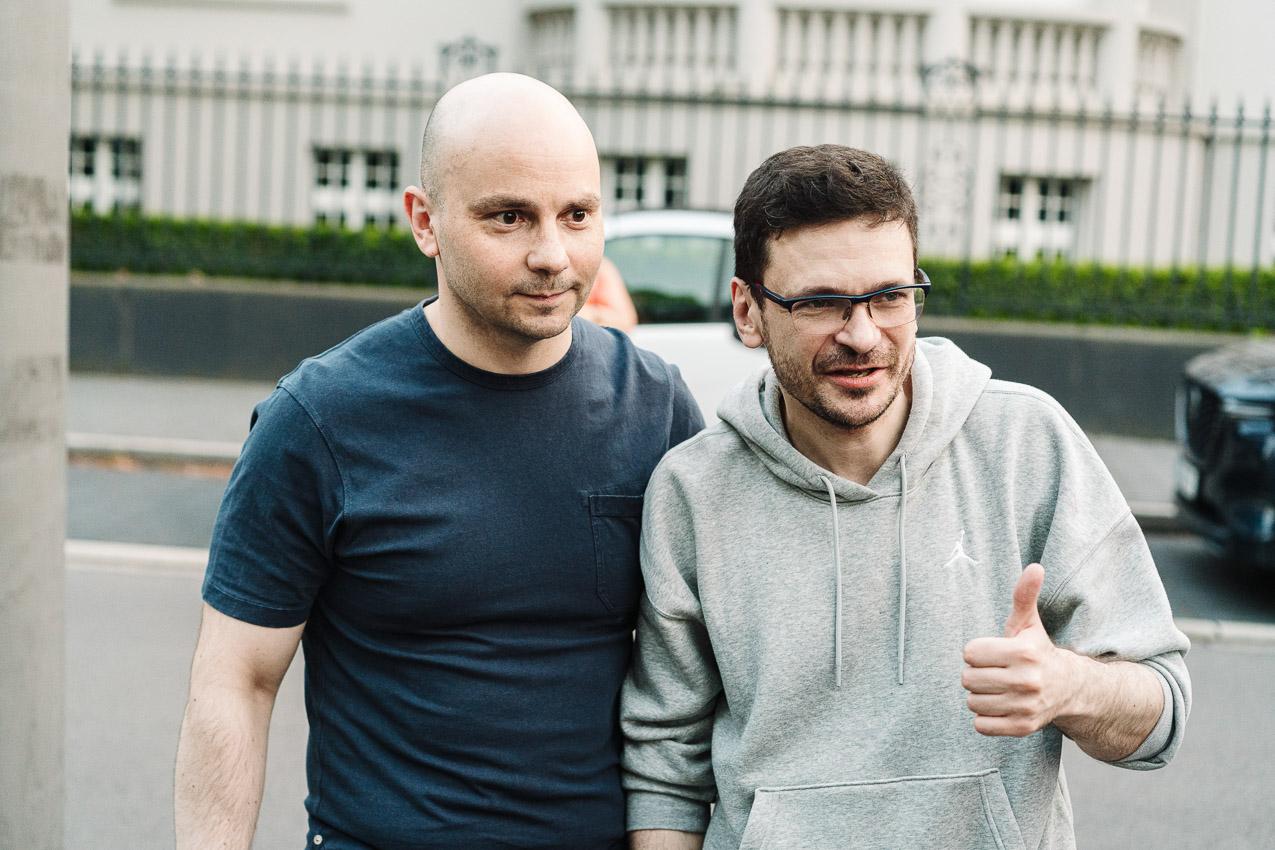
Andrei Pivovarov and Ilya Yashin after the press conference in Bonn, Germany on 2 August 2024
— I made friends with another influential guy who, unfortunately, passed away in prison from Covid. We both turned out to be fans of the singer [Svetlana] Loboda. He had a TV and I didn’t, but there were these air vents through which sound could travel. So, sometimes, he used to shout, «Andryukha, Andryukha, Loboda’s singing!» He’d lift the TV and I’d listen to Loboda. That, of course, was a real festivity!
At the same time, I understand there’s another side to it. When I first arrived and was in shock during those first few days, everyone was cautiously curious about my charges and why I ended up here, because, while you’re in there, you can hear all their conversations, and the investigation never stops. When they understand you’re not an undercover cop, understand why you’re sentenced and that you have principles you can stand by [they start treating you normally].
I had a lot of arguments with some, once a disagreement about Stalin even got heated to the point of yelling. But that was also considered normal, though it’s strange for an average person to argue with the most authoritative prisoner., But I was allowed to debate with him, not because I was cocky, but because I had a stance that I was standing by. I think if there wasn’t such pressure in our prisons, political prisoners could have normal relationships with the prison community. That’s probably why they isolated us. The whole time I was there, I didn’t have any conflict with other inmates, except for one time when I was subtly hinted that I was wrong.
— Can you tell me about that?
— [While waiting for appeal] I went to a form of pre-trial detention centre in the prison, which is basically a separated barrack for people who haven’t been convicted yet. I was stuck there for about eleven weeks. The only good thing was that time seemed to move faster — three days would feel like two. In general, it was dirty, with mosquitoes and cockroaches everywhere. There was no food and no shop to buy anything. The water was terrible: you’d fill up a cup and it would look like dark brown soda with a bunch of sludge floating in it — and it stunk. Washing up in it was hard, thoughI got used to it, but drinking it was impossible. I was fed up with it all. I decided to give a bottle of the water to a guy who was getting out. They sent it for testing in Krasnodar, and it turned out that long term consumption could cause problems with your liver and eyes.
[Through my lawyer, ] I wrote a post saying that I was lucky, because I had soda coming out of my tap. Even though it doesn’t taste or smell like soda, it definitely looks like it. And while they’re busy building more bars, fences, and barbed wire, it’d be better if they built some proper water filters, since most inmates don’t have the money to buy bottled water. I can afford it, but a lot of people here can’t.
Somehow, my post went viral and got a huge number of views. Apparently, it reached Moscow. I posted it on a Tuesday morning, and the next day, they pulled me out of my cell and brought me out into the yard. There, there was the guy who looked after the prison, a big guy, about one and a half times my size, with two others by his side. He tried to start a fight with me: «What are you complaining about there?!» I realised that there were more of them than me, so I was ready for anything. I said, «hey, what’s the problem? I didn’t even file a complaint. What are you talking about?» And he didn’t understand what was really going on. I explained the whole situation about the water. He responded, «wow, that’s how it really happened!»
If I had backed down, they might have started beating me up, but I doubt they would’ve killed me. I managed to steer the conversation [in a less aggressive direction.] As I understand it, here’s what happened: there was some noise around the situation, and they were told to sort it out. Once we started talking like normal people, the guy said «listen, if you need water, we’ll give it to you, no problem. It’s just that in prison, the more attention you draw, the worse it gets».
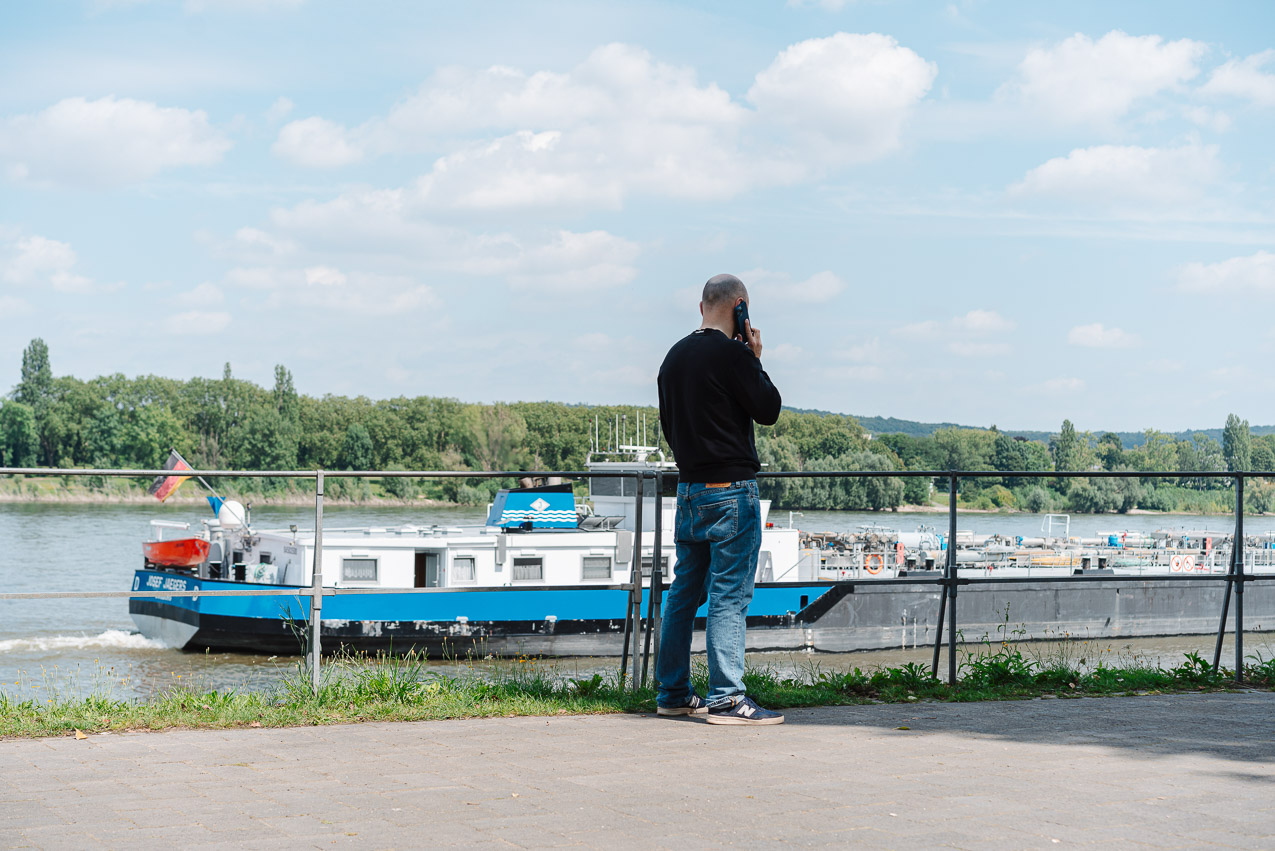
Andrei Pivovarov on the banks of the Rhine in Bonn, Germany, 5 August 2024
So, if you attract attention to the problem, any privileges they have would be suspended. It makes their life worse. So, maybe the plumbing will be fixed in the end but other screws will be tightened. And they, in their «big prisoner community», understand that the situation will get worse. But I as a new convict did not.
— This sounds pretty unexpected, especially if we operate on the assumption that attracting attention from the outside could help to improve conditions in prison or to get your basic human rights respected. For example, publicity had helped Sasha Skochilenko a lot when she was transferred to an 18-person cell.
— This could be the precedent. However, if we consider common non-political prisoners, it’s 100% easier for someone to simplify their life in prison if they don’t attract attention to themselves. That person can get matters taken care of, negotiate a deal. When there’s too much attention, prison guards are afraid to give privileges; they try to build a very rigid system so that they don’t get in trouble with their superiors.
Let’s take a look, for example, at a detention centre. There are 20 beds there for every 25 people and everybody takes turns to sleep. In this situation, if everybody complains to the prosecutor, it will only get worse. The centre’s administration understands that there’s nothing they can do and will also reect any convicts’ counterclaims. So, if we [convicts] don’t have enough space — okay, then they’ll give us more food, will get more time with the TV, receive phone privileges (I’ve never had a phone but that could happen) — give us some extra privileges. The presence of violations [by the prison] allows prisoners to cut deals, and that is a two-way street. If you’re a public person there will be no deals because no one knows what you will write on the internet or what your friends will say.
I read an interview withOlga Romanova in the magazine «Companion» [Sobesednik] where in an answer to the question «if you ever end up in prison, which one would you choose?» she chose Lefortovo. This bothered me. Never ever, if you have such a choice, should you do that. I’ve been there. The food is pretty good but that’s it. The most worn-down detention centre in Dagestan or Adygea [regions in the North Caucasus], with holes in the floor and with no food, even prison food, is better than the best Moscow prison.
— Oh, really? Why?
— It’s a strict facility. Yes, the food is better in Lefortovo but, roughly speaking, if your prison food doesn’t meet the standards — there’s no meat in the food — the detention centre will be responsible for that; you will complain [and get nothing]. But if I don’t complain [then we cut a deal that] the meat comes in from outside the prison. And this opens the window of opportunity.
— Karelian prison guards tried to do everything according to the regulations. We were to shower separately [from other prisoners, ] we weren’t taken to the communal bathhouse, and during the winter they’d even provide our barrack with separate plumbing so that we could have running water. Where there’s violations, there’s room for bargaining.
«The struggle has become tougher»
— What did you miss most during your time in prison?
— Talking to my loved ones, of course. My son celebrated three birthdays without me, and this hurts the most. The most annoying thing is that people are used to solving your problems by themselves, but in prison you need to have a lot of interactions to solve every little issue: write a letter, talk to someone, and even then people might not understand you. This powerlessness often made me think: «give me a phone for 30 minutes and I’ll solve everything!» Instead, you have to explain and persuade people to give you permission for simple things. This was a huge problem.
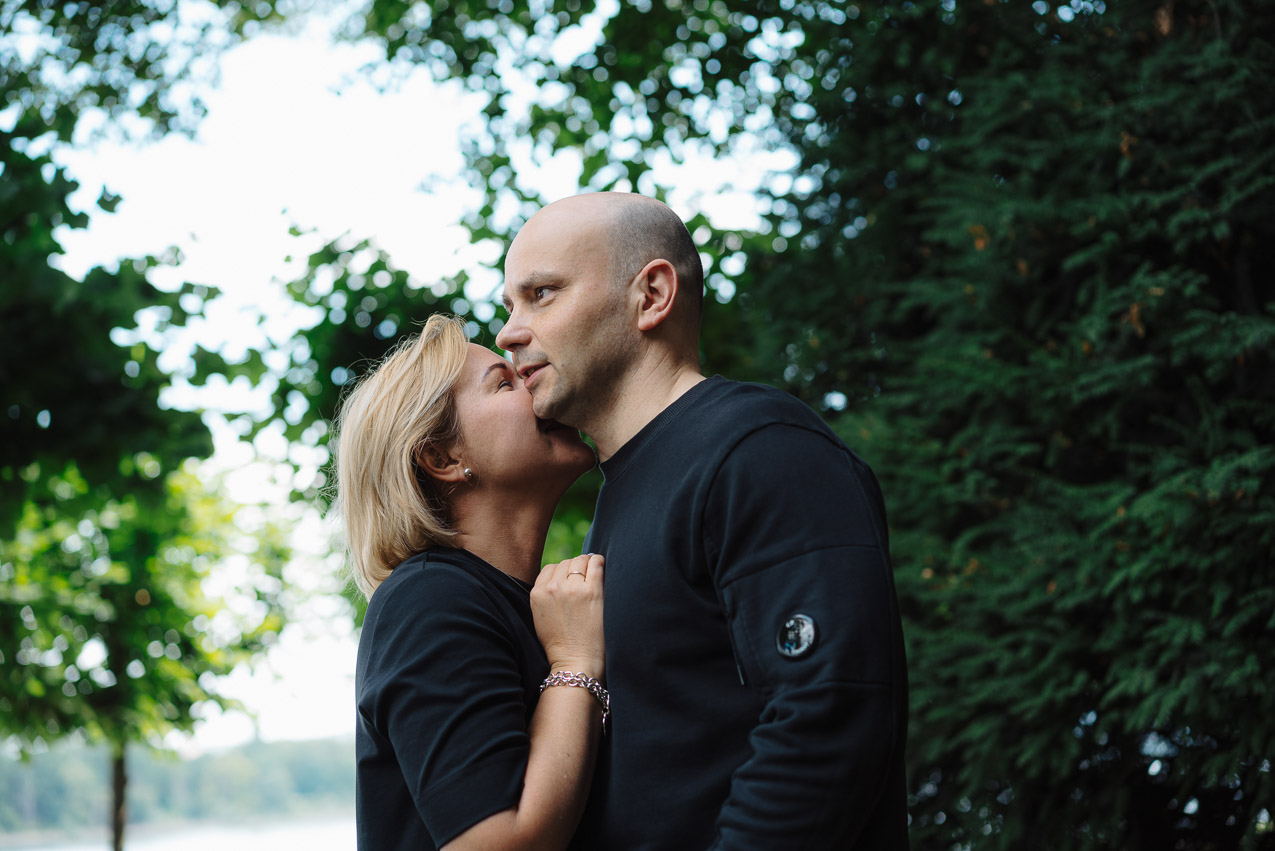
Andrei Pivovarov and Tatiana Usmanova, Bonn, Germany, 5 August 2024. A year ago Andrei and Tatiana got married at the prison in Karelia (north of Russia)
Plus, the lack of access to information. I later found a way to get [news] digests in order to understand what was going on outside to stay in the loop. It was crucial for me.
— Do you think prison has left its mark on you — your behaviour, your habits, your slang?
— It was very funny when everyone that took part in the exchange met — you could clearly who had been stationed where. For example, I used no slang at all for a year and a half. Words like «kicha» or «balander» would immediately get you into a punishment cell. «Lager» could also get you sent there, because the only correct term was «prison». Disciplinary commissions met four times a week, and someone would always be punished for slang expressions addressed at another prisoner. You learn to control yourself so as not to give them a chance.
Ever since my first incident [in 2015] in Kostroma, when I ended up in a detention centre — we were not used to administrative arrests back then — and many of the guys, when our first day of detention began, were tempted to romanticise prison: «balanda», «kormushka». I genuinely didn’t like any of that. You can’t let this culture in. Yes, there are rules of coexistence, colloquial concepts, but I’m not ready to boast about them. [When we were released] I took off my uniform in Lefortovo and just threw it away. You’d think to bring it home with you, but I was disgusted by the idea! If airborne troops put on [their] uniforms on the 2 of August (Special Forces Day in Russia), I will never put on any uniform voluntarily in my life. There is no romance in that.
Even now, when I talk about these routine things, I don’t feel any heroism in having been there. Prison didn’t give me anything of value. They say that the prison experience can be useful, but that’s utter nonsense. So I hope that what I’m saying doesn’t sounds like that. If there is a chance to avoid prison, one should always take it. Nothing good comes out of a prison, especially a Russian prison.
— How did you change during this time?
— I became calmer, I hope. When you are constantly provoked, poked, and prodded, you can try [to act rapidly thinking] «I’ll show them,» but most likely you will not be able to show anyone anything, because you actually have very little leverage. Bargaining, negotiations — that’s what works. That’s an acceptable approach. The ability to talk with others is very important there.
After the first interview, our position regarding Russia, working with the public, and the lifting of sanctions caused a flurry of negative reactions. People poured out a lot of rubbish and emotions on social media. Back then, I would have not hesitated to write out everything I thought about this, but now I think it’s just not worth it. Before, I would have tried to prove everyone wrong, but now I will just carefully proceed to pursue my own goals, which will be, I hope, more balanced.
— Yes, not even mere hours after you’d been released people started accusing you of breaking your promise to defend the interests of Russians. Even the Russian opposition is making such accusations. What do you think, why is this happening and what is your opinion on it?
— Of course, I knew [while I was still imprisoned] that everyone was constantly arguing, but I didn’t think it would be that bad. People always argue, but currently the level of aggression has increased. We’re living in times of war, even if we are in another country, especially those of us who are directly on one side of the conflict or another.
— It seems to me as though there’s also an element of powerlessness. When people can’t do anything about their situation, they are fixated on their opinions, and if someone doesn’t share their point of view, it provokes them and gives them energy in anger. I think that people have fewer opportunities for self-realisation. Remember how everyone was arguing over the collection of signatures for the election candidates [for Boris Nadezhdin and Ekaterina Duntsova during the presidential elections]? But when a specific cause arose, many people from different sides supported it. Now such a unifying cause practically doesn’t exist, and people still need to have some enemy.
— There are so many conflicts and quarrels. Is it really necessary for everyone to unite?
— Everyone knows internal struggle is the worst. Yes, the situation has become more severe and aggressive now, but I’ve been involved in politics for, unfortunately, more than 15 years — unfortunately, because so far my only success is getting out of prison. There have always been disputes about unification, who is good and who is bad, who is a Kremlin agent, who is a thug, who is a true oppositionist. This is normal from the point of view of society, because democrats do not march in formations, everyone is entitled to their own opinion — this has always been the case, this is normal. I was and still ama supporter of unity. We need to communicate and negotiate with each other.
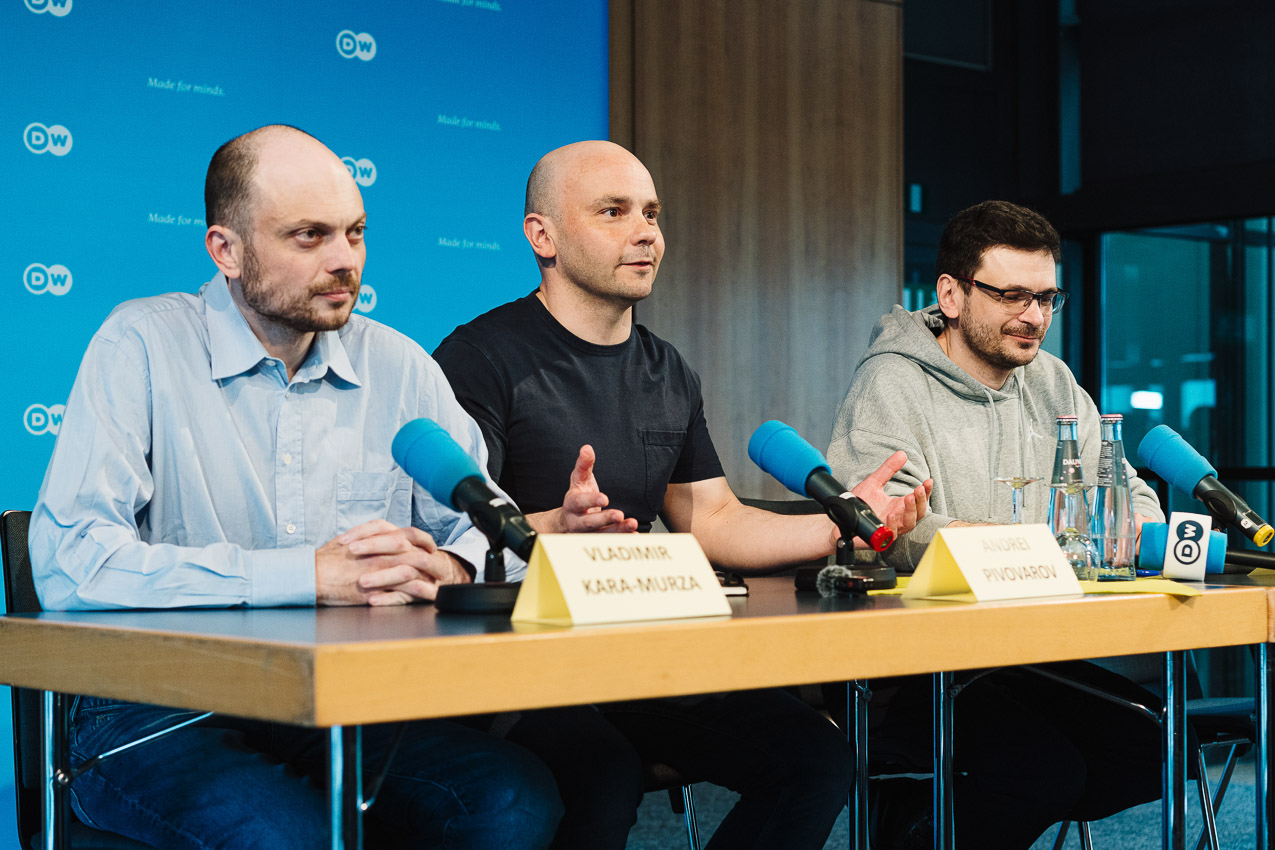
Vladimir Kara-Murza, Andrei Pivovarov and Ilya Yashin during a press-conference in Bonn, Germany, 2 August 2024
— Other released prisoners said that before the exchange they were offered a pardon agreement to sign. Did you sign it?
— Yes, while no one agreed to being exchanged, the situation with the pardon request was different. Shortly before my release (Andrei had one month left to serve — OVD-Info), about 5-7 days before the exchange, rumours started reaching me through friends and family that my release was far from guaranteed. I wanted to hope for the best, but there were signs and hints that I didn’t see from the inside.
So, I’m sitting and having lunch when an officer comes up to me and says: «Andrei, would you like to write a pardon request?» I reply «are you kidding me? That’s nonsense, it takes three months to process.» He says «well, give it a try, maybe it will be faster. It’s really necessary.» And I realised that some sort of game had begun. I had 10 minutes to make a decision. I knew there was a high probability that I wouldn’t be released, and I guessed that if it was some game or provocation, where it could be claimed that I begged for a pardon, I would write something that no one would want to publish: there was no admission of guilt there. I thought that with the information I had, I didn’t compromise myself in any way, there was no humiliating plea in it.
I fully understand that in this situation, it would have been better if other people, for example, those with serious health issues, were in my place. I didn’t sign up for this exchange, nor did I initiate it in any way. I suspect that the number of slots was limited, and I hope that I didn’t take anyone’s place. None of the people who supported me would have wasted resources and made serious efforts to exchange someone who only had a month left to serve. Apparently, the negative forecasts about me were real.
— Of course, everyone is happy for the people who were freed. But from a political standpoint, is such an exchange a good thing or not?
— It’s absolutely a good thing. All these arguments about «don’t give Putin a free hand to create new Krasikovs» have very weak grounds. If there’s a desire to take new hostages, that can be done at any moment—it’s not a problem. But freeing people is very important. Our country is currently under occupation, and there’s partisan logic here: it’s more useful to be free than to be in prison. Even if some of these people will never engage in politics again — it doesn’t matter, the main thing is that we got our people out. That’s what’s important, even if some of them disagree with the exchange.
— Even if they disagree? Doesn’t that take away their freedom of choice?
— My position is more radical. If someone is categorically against it and clearly articulates that, then it’s a debatable issue. But my personal stance is that the more people are free, the better. The only one who benefits from people being in dungeons is the regime.
— Do you think you’ll be able to continue your political work from abroad? Or are you done with it and heading to a spa?
I’d love to go to a spa but I need to keep working. At some point, of course, I’ll need to take a break. It’s important for me not to lose touch with Russia. In these three days, I see that the issues that were important to me back there are not even being discussed here. For example, when the Central Bank raised interest rates, that was a big event for me — I spent a week thinking about the consequences, but no one talks about it here. Rising prices, the fall of the stock market — these are events that matter to a significant part of the population in Russia. The fact that you’re not inside the country slightly diminishes your voice, but at the same time, it gives you the opportunity to speak loudly about what can be done there, perhaps even to coordinate efforts. This opportunity needs to be used.
Text: Marina-Maya Govzman
All photos: Dasha Trofimova for OVD-Info



